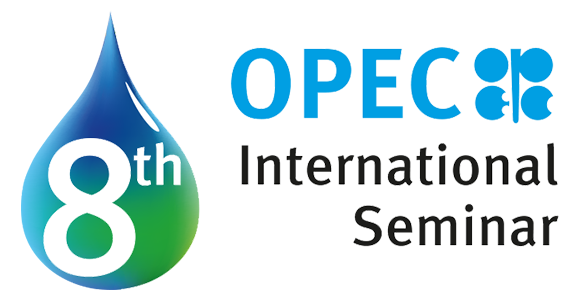Programme
Opening of the Exhibition
Running parallel to the two-day 8th OPEC International Seminar programme, the Seminar Exhibition will allow exhibitors and attendees to spotlight on the global energy agenda and its most pressing challenges and opportunities, including trends and innovations related to the latest technologies and developments across the industry’s entire value chain. This will not only help to reinforce existing relationships, but build bridges for future dialogue and cooperation.
10:00 – 10:50
Opening ceremony
With oil and energy leaders from around the world gathering at the historic Hofburg Palace in Vienna, join the President of the OPEC Conference in 2023 and the OPEC Secretary General to set the scene for the 8th OPEC International Seminar. Reflecting on the history of the landmark event, the current global energy landscape, and the future outlook, the Opening Ceremony will provide a harbinger to the two days of deliberations ahead.
Speakers
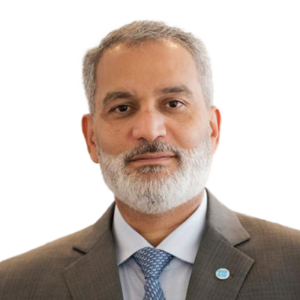
Haitham AL GHAIS
Secretary General, OPEC

Antonio Oburu ONDO
President of the OPEC Conference in 2023, Minister of Mines and Hydrocarbons, Equatorial Guinea
Moderated by

John DEFTERIOS
Professor of Business NYU, Abu Dhabi
John Defterios is veteran, award winning journalist and economic analyst with more than 35 years of experience at CNN, Reuters and PBS Television in the United States.
John recently retired as CNN Business’ Emerging Markets Editor and Anchor. Based in the network’s Abu Dhabi bureau since 2011, his reporting focused on the top business stories from emerging economies, with a specialty in energy, trade, and geo-politics.
He is a board member in media and the youth development arenas, Professor of Business at NYU-Abu Dhabi, a World Economic Forum Disntinguished Energy Fellow and Strategic Senior Advisor for the global public affairs firm APCO Worldwide.
Defterios arrived full-time to the Gulf during the regional uprisings of the Arab Spring and covered the economic rebuilding and challenges across the region. Major story coverage included: the impact of Covid-19 on the global economy, oil prices collapsing into negative territory for the first time, and the passing of King Abdullah in Saudi Arabia. He was key member of the CNN team that won the coveted Alfred I. Dupont award for in-country coverage between 2017-19.
His last major project for CNN, was the conception, launch and hosting of the “Global Energy Challenge” a year long series exploring the energy transition. In this role, Defterios was Managing Editor and presenter travelling from Far East Asia to North America exploring the journey to Net Zero by 2050. Defterios started covering energy in the mid-1980’s with special series from Alaska, the Gulf of Mexico and the Arabian Gulf, including worldwide exclusives from the burning oil fields of Kuwait.
Defterios remains a sought after fixture at high-level global events as both a speaker and moderator. He chairs sessions at the World Economic Forum, the OPEC Seminar, IMF Global Roundtable, St. Petersburg International Economic Forum, ADIPEC, Atlantic Council Global Energy Forum, U.A.E. World Government Summit, Global Manufacturing & Industrializaton Summit (GMIS), The Milken Institute, IRENA General Assembly, Euromoney Roundtables, Economist Global Summits, U.S.-Saudi Arabia Investment Summit, Islamic Development Bank Annual Meeting, , Stern Stewart Institute, Global Women’s Forum, UNWTO Global Tourism Council, World Energy Council and Saudi Arabia’s Future Investment Initiative and many others.
Defterios covered some of the landmarks events during his career including the Gulf War, the fall of the Berlin Wall, the World Trade Centre bombings and G8/G20 summits, the L.A. Riots from his postings in London, Washington, New York, Los Angeles, Rome and the U.A.E.
Defterios built a long-standing reputation for securing exclusive interviews with high-level figures during breaking news situations including: HH Sheikh Mohammed bin Rachid, Prime Minister of the UAE and Ruler of Dubai, King Abdullah II of Jordan, Ali Al Naimi, Khalid Al Falih & Prince Abdulaziz bin Salman, Energy Ministers of Saudi Arabia, which frequently moved oil markets. He also received The Abdullah bin Hamad Al-Attiyah International Foundation award for the Advancement of Energy Journalism.
Defterios was a World Economic Forum media leader from 1995-2021, a member of the Global Agenda Council on the Arab World and is a WEF Energy Fellow. He also serves on the board of the Stern Stewart Institute in Germany, a non-for-profit group promoting leadership and entrepreneurship.
Prior to CNN, Defterios worked for Reuters Television as European Correspondent, U.S. West Coast Correspondent and special series producer in a joint-venture with The Nightly Business Report on PBS-TV.
He graduated from the University of Southern California with a BA in Journalism and Political Economics and was a fellow at the USC’s Institute of Politics and Government in Washington D.C.

Eithne TREANOR
Founder & CEO, ETreanor Media
Eithne Treanor is a professional conference moderator and international communications consultant. Having worked as a business TV reporter, her expertise covers energy, commodities, technology, infrastructure and leadership.
She is the founder and CEO of E Treanor Media based in Dubai, UAE.
As a former international broadcast journalist, her TV reporting experience spans major television networks including ABC News, Sky News, BBC World, Bloomberg and CNBC International.
She also provides dynamic and energetic bespoke media, moderator and presentation trainings for government officials, corporate executives and leaders. All her work and trainings help people engage with the media and be more effective and impactful delivering conference content on the global stage.
Eithne has interviewed politicians, dignitaries, and high-ranking business people and has written and reported for television, radio and print publications.
She is a graduate of Trinity College Dublin, Columbia College Chicago and has a post graduate Diploma in International Relations from London School of Economics.
10:50 – 11:20
Special introductory session
Speaker
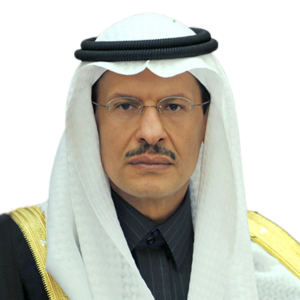
HRH Prince Abdulaziz bin Salman AL SAUD
Minister of Energy, Kingdom of Saudi Arabia
Moderated by

Dr. Paul HORSNELL
Global Head of Commodities at Standard Chartered Plc
John Defterios is veteran, award winning journalist and economic analyst with more than 35 years of experience at CNN, Reuters and PBS Television in the United States.
John recently retired as CNN Business’ Emerging Markets Editor and Anchor. Based in the network’s Abu Dhabi bureau since 2011, his reporting focused on the top business stories from emerging economies, with a specialty in energy, trade, and geo-politics.
He is a board member in media and the youth development arenas, Professor of Business at NYU-Abu Dhabi, a World Economic Forum Disntinguished Energy Fellow and Strategic Senior Advisor for the global public affairs firm APCO Worldwide.
Defterios arrived full-time to the Gulf during the regional uprisings of the Arab Spring and covered the economic rebuilding and challenges across the region. Major story coverage included: the impact of Covid-19 on the global economy, oil prices collapsing into negative territory for the first time, and the passing of King Abdullah in Saudi Arabia. He was key member of the CNN team that won the coveted Alfred I. Dupont award for in-country coverage between 2017-19.
His last major project for CNN, was the conception, launch and hosting of the “Global Energy Challenge” a year long series exploring the energy transition. In this role, Defterios was Managing Editor and presenter travelling from Far East Asia to North America exploring the journey to Net Zero by 2050. Defterios started covering energy in the mid-1980’s with special series from Alaska, the Gulf of Mexico and the Arabian Gulf, including worldwide exclusives from the burning oil fields of Kuwait.
Defterios remains a sought after fixture at high-level global events as both a speaker and moderator. He chairs sessions at the World Economic Forum, the OPEC Seminar, IMF Global Roundtable, St. Petersburg International Economic Forum, ADIPEC, Atlantic Council Global Energy Forum, U.A.E. World Government Summit, Global Manufacturing & Industrializaton Summit (GMIS), The Milken Institute, IRENA General Assembly, Euromoney Roundtables, Economist Global Summits, U.S.-Saudi Arabia Investment Summit, Islamic Development Bank Annual Meeting, , Stern Stewart Institute, Global Women’s Forum, UNWTO Global Tourism Council, World Energy Council and Saudi Arabia’s Future Investment Initiative and many others.
Defterios covered some of the landmarks events during his career including the Gulf War, the fall of the Berlin Wall, the World Trade Centre bombings and G8/G20 summits, the L.A. Riots from his postings in London, Washington, New York, Los Angeles, Rome and the U.A.E.
Defterios built a long-standing reputation for securing exclusive interviews with high-level figures during breaking news situations including: HH Sheikh Mohammed bin Rachid, Prime Minister of the UAE and Ruler of Dubai, King Abdullah II of Jordan, Ali Al Naimi, Khalid Al Falih & Prince Abdulaziz bin Salman, Energy Ministers of Saudi Arabia, which frequently moved oil markets. He also received The Abdullah bin Hamad Al-Attiyah International Foundation award for the Advancement of Energy Journalism.
Defterios was a World Economic Forum media leader from 1995-2021, a member of the Global Agenda Council on the Arab World and is a WEF Energy Fellow. He also serves on the board of the Stern Stewart Institute in Germany, a non-for-profit group promoting leadership and entrepreneurship.
Prior to CNN, Defterios worked for Reuters Television as European Correspondent, U.S. West Coast Correspondent and special series producer in a joint-venture with The Nightly Business Report on PBS-TV.
He graduated from the University of Southern California with a BA in Journalism and Political Economics and was a fellow at the USC’s Institute of Politics and Government in Washington D.C.
11:20 – 11:40
Networking coffee break
11:40 – 12:30
Ministerial session 1
Market stability and energy security
For both producers and consumers, energy security is a dominant concern. What goes hand-in hand with this is sustainable energy market stability. In the case of the oil market, this means balanced and sound fundamentals, as well as a platform to ensure that the necessary investments across the full industry value chain are made to meet future demand. In this regard, it is important to recognize the potential impact of excessive volatility, in its various guises, on the oil market. For example, the impact of disconnects between the physical and paper markets, the role of speculative activities, and how policies and the environmental disclosure drive can lead to a shortfall in oil investments that leads to further energy insecurity.
Speakers

Antonio Oburu ONDO
President of the OPEC Conference in 2023, Minister of Mines and Hydrocarbons, Equatorial Guinea
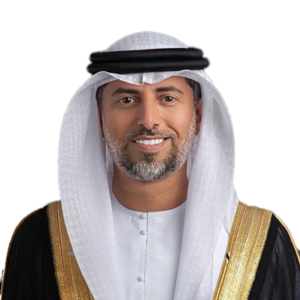
Suhail Mohamed AL MAZROUEI
Minister of Energy and Infrastructure, UAE
Besides his Ministerial responsibilities, His Excellency holds the following positions:
- Chairman of the Board of Directors of the Federal Electricity and Water Authority.
- Chairman of the Board of Directors, Emirates General Petroleum Corporation.
- Member of the Supreme Petroleum Council and member of the Executive Committee of the Council.
- Member of the Board of Directors and of the Executive Committee of Mubadala Investment Company.
- Vice-Chairman of the Board of Directors of: (Emirates Nuclear Energy Corporation, Nawah Energy Company, and Barakah One Company)
- Member of the Board of Directors of Dolphin Energy.
His Excellency has eminent management experiences in the field of corporate management in several sectors including shipbuilding, defence systems, petroleum services sector, oil and gas, and the real estate development sector. His Excellency Suhail Al Mazrouei graduated in 1996 from the University of Tulsa in the United States of America with a Bachelor’s degree in Petroleum Engineering. He was born in Dubai on July 1st, 1973. His hobbies include poetry, literature and history.

Parviz SHAHBAZOV
Minister of Energy, Azerbaijan

Amb. Gabriel Tanimu ADUDA
Permanent Secretary, Ministry of Petroleum Resources, Nigeria
Moderated by

Helima CROFT
Managing Director and Global Head of Commodity Strategy, RBC Capital Markets
Helima Croft, PhD
Managing Director, Head of Global Commodity Strategy and MENA Research
Global Research, RBC Capital Markets, LLC
Bio
Helima is a Managing Director and the Head of Global Commodity Strategy and Middle East and North Africa (MENA) Research at RBC Capital Markets. She specializes in geopolitics and energy, leading a team of commodity strategists that cover energy, metals and cross-commodity investor activity, as well as policy analysis and both Washington and global political insights. Helima is a member of the National Petroleum Council, a select group of individuals who advise, inform and make recommendations to the Secretary of Energy with respect to any matter relating to oil and natural gas. She also is a CNBC contributor, a member of the channel’s exclusive family of experts, is on the Board of Directors for the Atlantic Council, and is a Life Member of the Council on Foreign Relations. She is on the Board of Directors of Reservoir Media, Inc., the first female-founded and led publicly traded independent music company in the U.S. Helima joined RBC Capital Markets from Barclays, where she was a Managing Director and Head of North American Commodities Research. Prior to that, she worked in Lehman’s Business Intelligence Group, the Council on Foreign Relations and the Central Intelligence Agency, where she focused on geopolitics and commodities. Helima has received many industry accolades throughout her career and received her PhD in economic history from Princeton in 2001
12:30 – 13:30
High-level roundtable 1
Energy sustainability trilemma
In recent years, it has become clear that the energy world is facing challenges that are enormous, complex and interconnected. This has been evidenced by the strains and conflicting targets related to energy security, energy affordability and the need to reduce emissions, all integral components of the energy sustainability trilemma. It has become clear that focusing on one aspect of the trilemma, while neglecting the others, can lead to unintended consequences, such as market volatilities, price shocks and energy shortages. In order to avoid these unwanted effects, national and international energy policies should be evolved carefully, fine-tuned when necessary and involve all relevant stakeholders. With energy at the heart of the global economy, and people’s everyday lives, it is vital to take a holistic view of the energy sustainability trilemma.
Speakers

Mohamed HAMEL
Secretary General, GECF

Francesco LA CAMERA
Director General, IRENA
Agency (IRENA). He took office on 4 April 2019 and he brings more than thirty years of
experience in the fields of climate, sustainability, and international cooperation.
In his role, Mr. La Camera is responsible for leading the delivery of IRENA’s work
programme and strategy in cooperation with the Agency’s member states. At a critical time
for climate change and the achievement of the Sustainable Development Goals, Mr. La
Camera is tasked with redefining the structure and operations of the Agency in response to the urgent needs of its members.

Amin H. NASSER
President and CEO, Aramco
During a company career spanning four decades, Nasser has served in a number of leadership positions, including as senior vice president of Upstream. In that role, he led Saudi Aramco’s largest capital investment program in its integrated oil and gas portfolio. Under Nasser’s leadership, the company is now building on its upstream leadership posi¬ton by expanding its presence in the downstream and chemicals segments of the petroleum value chain, with significant investments and joint-venture partnerships in the Kingdom as well as a number of overseas markets.
Nasser is actively engaged in the advancement of people through educati¬on and training, and advancing the company’s innovati¬on and technology strategy. Nasser is a champion of Saudi youth advancement and development and keenly supports the company’s Young Leader’s Advisory Board (YLAB), a program designed to link Saudi Aramco leadership with the voice of its young professionals.
At the same ti¬me, Nasser is leading Saudi Aramco’s efforts to produce cleaner energy and products through investments in promising technologies such as next-genera¬tion fuel-engine interfaces, crude oil-to-chemicals processes, and renewable energy applica¬tions; entrepreneurial start-ups focused on cleaner energy solu¬tions; and industry-wide efforts to minimize greenhouse gas emissions, such as the Oil and Gas Climate Ini¬tiative (OGCI).
In additi¬on to his corporate responsibilities, Nasser is a member of the International Advisory Board of the King Fahd University of Petroleum and Minerals; the Board of Trustees of the King Abdullah University of Science & Technology; the World Economic Forum’s International Business Council (IBC); the Massachusetts Ins¬titute of Technology Presidential CEO Advisory Board; and the JP Morgan International Council.
Nasser holds a bachelor's degree in petroleum engineering from the King Fahd University of Petroleum and Minerals in Dhahran. He completed the Saudi Aramco Management Development Seminar in Washington, D.C., in 1999; the Saudi Aramco Global Business Program in 2000; and the Senior Executive Program at Columbia University in 2002.

Patrick POUYANNÉ
Chairman and CEO, Total Energies
Patrick Pouyanné joined the company TotalEnergies (ex Total) in January 1997, with positions in Angola and Qatar in 1999.
In August 2002, he was named Senior Vice President, Finance, Economics and Information Systems in Exploration & Production, then Senior Vice President, Strategy, Business Development and R&D in Exploration & Production in 2006.
In January 2012, he was appointed President, Refining & Chemicals and member of the Executive Committee.
On October 22nd, 2014, the Board of Directors appointed Patrick Pouyanné as Chief Executive Officer, and he became simultaneously President of the Executive Committee.
On May 29th, 2015, Patrick Pouyanné was appointed at the Board of Directors and on December 16th, 2015, he was appointed Chairman of the Board of Directors and Chief Executive Officer.
Patrick Pouyanné is also member of the Board of Cap Gemini, Association Française des Entreprises Privées (AFEP), Institut du Monde Arabe, Ecole Polytechnique and Institut Polytechnique of Paris. Patrick Pouyanné is President of the Alliance for Education, French association against dropping out of school. Patrick Pouyanné is President of the Association Française des Entreprises pour l’Environnement
He has been a Knight of the Legion of Honor since April 2015

Kadri SIMSON
Commissioner for Energy, European Commission
She was previously the Minister of Economic Affairs and Infrastructure in Jüri Ratas' first cabinet from 2016 to 2019. During the Estonian Presidency in the Council of the EU, Simson chaired both energy ministers and transport ministers meetings in TTE Council and ministers of economy format in EU Competitiveness Council.
From 2007–2016 Kadri Simson was a member of the 11th, 12th, and 13th Riigikogu and in 2019 she was also elected to the 14th Riigikogu. She holds a Master's degree in Political Science from University College London.

Jim BURKHARD
Vice President & Head of research for oil markets, energy & mobility, S&P Global Commodity Insights
Jim has led the development of each generation of S&P Global scenarios that bring together the entirety of energy research to form an integrated global outlook for the future of energy.
Prior to joining Cambridge Energy Research Associates before its acquisition by S&P Global, he was a member of the US Peace Corps in Niger, West Africa, where he directed infrastructure projects to improve water availability and credit facilities.
Jim holds a BA from Hamline University and an MS from the School of Foreign Service at Georgetown University.
Moderated by

John DEFTERIOS
Professor of Business NYU, Abu Dhabi
John Defterios is veteran, award winning journalist and economic analyst with more than 35 years of experience at CNN, Reuters and PBS Television in the United States.
John recently retired as CNN Business’ Emerging Markets Editor and Anchor. Based in the network’s Abu Dhabi bureau since 2011, his reporting focused on the top business stories from emerging economies, with a specialty in energy, trade, and geo-politics.
He is a board member in media and the youth development arenas, Professor of Business at NYU-Abu Dhabi, a World Economic Forum Disntinguished Energy Fellow and Strategic Senior Advisor for the global public affairs firm APCO Worldwide.
Defterios arrived full-time to the Gulf during the regional uprisings of the Arab Spring and covered the economic rebuilding and challenges across the region. Major story coverage included: the impact of Covid-19 on the global economy, oil prices collapsing into negative territory for the first time, and the passing of King Abdullah in Saudi Arabia. He was key member of the CNN team that won the coveted Alfred I. Dupont award for in-country coverage between 2017-19.
His last major project for CNN, was the conception, launch and hosting of the “Global Energy Challenge” a year long series exploring the energy transition. In this role, Defterios was Managing Editor and presenter travelling from Far East Asia to North America exploring the journey to Net Zero by 2050. Defterios started covering energy in the mid-1980’s with special series from Alaska, the Gulf of Mexico and the Arabian Gulf, including worldwide exclusives from the burning oil fields of Kuwait.
Defterios remains a sought after fixture at high-level global events as both a speaker and moderator. He chairs sessions at the World Economic Forum, the OPEC Seminar, IMF Global Roundtable, St. Petersburg International Economic Forum, ADIPEC, Atlantic Council Global Energy Forum, U.A.E. World Government Summit, Global Manufacturing & Industrializaton Summit (GMIS), The Milken Institute, IRENA General Assembly, Euromoney Roundtables, Economist Global Summits, U.S.-Saudi Arabia Investment Summit, Islamic Development Bank Annual Meeting, , Stern Stewart Institute, Global Women’s Forum, UNWTO Global Tourism Council, World Energy Council and Saudi Arabia’s Future Investment Initiative and many others.
Defterios covered some of the landmarks events during his career including the Gulf War, the fall of the Berlin Wall, the World Trade Centre bombings and G8/G20 summits, the L.A. Riots from his postings in London, Washington, New York, Los Angeles, Rome and the U.A.E.
Defterios built a long-standing reputation for securing exclusive interviews with high-level figures during breaking news situations including: HH Sheikh Mohammed bin Rachid, Prime Minister of the UAE and Ruler of Dubai, King Abdullah II of Jordan, Ali Al Naimi, Khalid Al Falih & Prince Abdulaziz bin Salman, Energy Ministers of Saudi Arabia, which frequently moved oil markets. He also received The Abdullah bin Hamad Al-Attiyah International Foundation award for the Advancement of Energy Journalism.
Defterios was a World Economic Forum media leader from 1995-2021, a member of the Global Agenda Council on the Arab World and is a WEF Energy Fellow. He also serves on the board of the Stern Stewart Institute in Germany, a non-for-profit group promoting leadership and entrepreneurship.
Prior to CNN, Defterios worked for Reuters Television as European Correspondent, U.S. West Coast Correspondent and special series producer in a joint-venture with The Nightly Business Report on PBS-TV.
He graduated from the University of Southern California with a BA in Journalism and Political Economics and was a fellow at the USC’s Institute of Politics and Government in Washington D.C.
13:30 – 14:50
Lunch
14:50 – 15:40
Ministerial session 2
Investments, finance and inclusive petroleum growth strategies
Investments are the lifeblood of the global oil industry. In OPEC’s World Oil Outlook, required oil industry investments total $12.1 trillion to 2045. This equates to over $500 billion each year on average, with recent annual levels significantly below this, due to industry downturns, the pandemic, and the increasing focus on environmental, social, and governance (ESG) issues. Industry stakeholders can help to ensure a long-term investment-friendly climate, with sufficient finance available and supportive and inclusive policies. Investments should consider an ‘all-peoples, all-fuels and all-technologies’ approach to the issues of energy security and reducing emissions. One that is sustainable, works for both producers and consumers, and developed and developing countries.
Speakers

Saad AL BARRAK
Deputy Prime Minister, Minister of Oil, Minister of State for Economic and Investment Affairs, Kuwait
In 2007 he was appointed as the Managing Director & CEO of Zain (formerly MTC) a leading telecom operator across the Middle East and Africa.
Dr. Al Barrak holds a BSc in Electrical Engineering, an MSc in Systems Engineering from Ohio University, and a PhD in Information Systems & Technology Management from the University of London. He is also an alumnus of Harvard University.
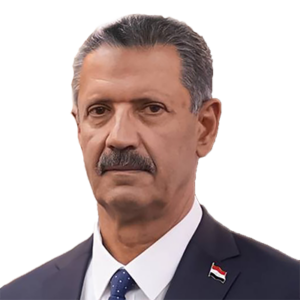
Hayan ABDULGHANI ABDULZAHRA ALSAWAD
Deputy Prime Minister for Energy Affairs, Minister of Oil, Iraq
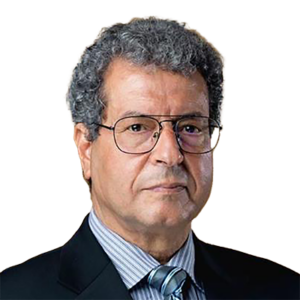
Mohamed M. OUN
Minister of Oil & Gas, Libya
Most recently, he served as the Libyan Governor for The Organization of the Petroleum Exporting Countries (OPEC) in 2015-2019. He was also an Executive Board Member of the GECF in 2014- 2020. Previously, he held several positions with the Libyan National Oil Corporation (NOC), including that of senior executive advisor to the NOC Chairman.
From 1981-2011, Operations Manager, OXY Libya/Zueitina company. He was Chairman of the Management Committee of Zueitina Oil company from 1999 to the end of 2005.
He was Technical representative of NOC in the Greenstream company which built and operates the undersea pipeline from Mellitah-Libya to Sicily-Italy to transport Natural Gas, then he was board member in this company from 2001 to 2010.
Chairman Management committee Mellitah Oil & Gas B.V Libyan branch 2008-2011.
He served as Chairman or member of various committees formed by NOC Management and was Chairman of Committee which negotiated with international Oil Companies to change the terms of the agreements to EPSA 4 in 2007-2011.
The Minister was the Deputy Vice Prime Minister for Energy in 2014-2016 and was a senior executive advisor to the President of the Presidency Council in 2017-2021.
The Minister holds a Bachelor`s degree in Chemical Engineering and is a member of the American Society of Petroleum Engineers.
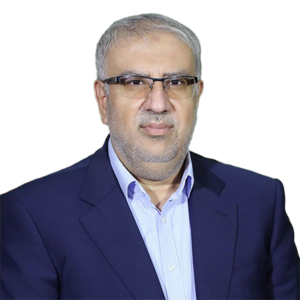
Javad OWJI
Minister of Petroleum, Islamic Republic of Iran
Minister of Petroleum
He was born in hiostorical city of Shiraz in 1966.
Petroleum engineering, Abadan Petroleum University, 1987
He served in various oil-related posts, including:
• Managing Director and Vice Chairman of the Board of Directors, South Zagros Oil and Gas Production Company, 2004–2009.
• Deputy oil minister and CEO of National Iranian Gas Company from 2009 to 2013.
• Chairman of the Board of Directors, Supervision of Gas Production and
• Refineries, 2009
• Member of the Board of Directors, Oil Industry Pension Fund, and Chairman
• of the Board of Directors, Iran Gas Development Engineering Company,
• 2009–2013
• Deputy Minister of Petroleum and Managing Director, National Iranian Gas
• Company, 2009–2013
• Chairman of the Board of Directors, Gas Refineries of the National Iranian
• Gas Company
• Member of the Board of Trustees, University of Petroleum Industry,
• 2010–2013
• Managing Director and Vice Chairman of the Board of Directors, Petro Mofid
• Oil and Gas Holding Development, 2013–2017
• Chairman of the Board of Directors, Petrochemical Investment Company,
• 2014–2017
• Managing Director, Mofid Economic Group, 2017–2019
• CEO, Sina Energy Gostar Holding, and Member of the Board of Directors,
• Razavi Oil and Gas Company, 2019–2021
Minister of Petroleum, 25 August 2021 to present.
Moderated by

Eithne TREANOR
Founder & CEO, ETreanor Media
Eithne Treanor is a professional conference moderator and international communications consultant. Having worked as a business TV reporter, her expertise covers energy, commodities, technology, infrastructure and leadership.
She is the founder and CEO of E Treanor Media based in Dubai, UAE.
As a former international broadcast journalist, her TV reporting experience spans major television networks including ABC News, Sky News, BBC World, Bloomberg and CNBC International.
She also provides dynamic and energetic bespoke media, moderator and presentation trainings for government officials, corporate executives and leaders. All her work and trainings help people engage with the media and be more effective and impactful delivering conference content on the global stage.
Eithne has interviewed politicians, dignitaries, and high-ranking business people and has written and reported for television, radio and print publications.
She is a graduate of Trinity College Dublin, Columbia College Chicago and has a post graduate Diploma in International Relations from London School of Economics.
15:40 – 16:40
High-level roundtable 2
Energy investment: challenges and opportunities
Energy is a central pillar of global economic growth and social welfare, underpinning old and new industries, investments, innovations, access to health, education and job opportunities. Access to reliable and affordable energy sources for all cannot be achieved without regular and steady investments. Today, investors are often caught up in dilemmas that challenge their impetus to invest, for example, political and regulatory uncertainty, ESG issues and the knock-on impacts of the pandemic. These challenges need to be faced head on, particularly given that OPEC’s World Oil Outlook sees global energy demand rising by 23% in the period to 2045. This expansion also underscores the opportunities in the energy space, and the massive investments required.
Speakers

Shaikh Nawaf S. AL-SABAH
CEO, KPC
Previously, he was Chief Executive Officer of KPC’s international upstream and downstream businesses, where he was responsible for expanding into new geographies and technologies and doubling annual revenues.
Previously, he was Deputy Managing Director and General Counsel of KPC, where he was the principal in-house counsel to KPC and a leading member of KPC’s negotiating teams on the corporation’s strategic projects.
Shaikh Nawaf holds an A.B. degree magna cum laude from Princeton University’s School for Public and International Affairs and a Juris Doctor degree cum laude from Harvard Law School.

Claudio DESCALZI
CEO , ENI

Russel HARDY
President and CEO, Vitol

John HESS
CEO, HESS Corporation
Mr. Hess holds a bachelor’s degree from Harvard College and an MBA from the Harvard Business School.
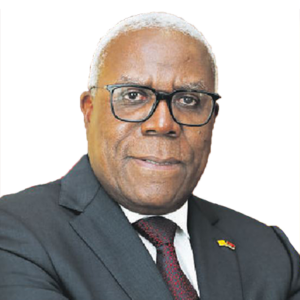
Sebastiao MARTINS
CEO, Sonangol
Gaspar Martins started his career as Production Supervisor at FINA Petróleos de Angola. He later became a Production Engineer of Sonangol U.E.E.’s Production and Reservoirs Department from 1980 to 1986. His outstanding performance led to his appointment as Head of the Production Division of the Production and Reservoirs Department of Sonangol U.E.E. in 1989. By 1999, he had taken on the position of General Manager of Sonangol Pesquisa e Produção. During this time, he also represented Sonangol U.E.E.'s interests in the Block 2 Contractors Group and was a member of the Kwanda Logistics Base and Sonamet Construction Site Management Committee.
In 2019, Gaspar Martins was appointed Chairman and CEO of the Board of Directors of Sonangol E.P., where he to this day, oversees the operations of Angola's national oil company. Prior to this, he was a member of the Executive Board of Directors of Sonangol E.P. from 2017 to 2019. Previously, he was Chairman of the Board of Directors of Somoil from 2015 to 2017 and a member of the Board of Directors of Sonangol E.P. from 2010 to 2013. Between 2000 and 2010, he was the Chairman of the Board of Directors and Executive Committee of Sonangol Pesquisa e Produção.

Jean Paul PRATES
CEO, Petrobras
He was a member of the legal counsel of Petrobras International S.A. - Braspetro, editor of the Oil & Gas Journal Latinoamericana and Executive Director of Expetro Consultoria em Recursos Naturais Ltda., the largest national oil consultancy during the 1990s and 2000s, when he coordinated projects for several public and private companies, national and international, union and sector entities, and advised governments, regulatory agencies and parliamentarians in all areas of the energy sector.
As Energy Secretary of the Rio Grande do Norte State Government he led the state to energy selfsufficiency and national leadership in wind power generation. He was recently recognized as one of the three most influential people in the renewable energy sector in Brazil, and one of the 50 most important personalities in the world energy sector, by the two main publications in Brazil, and one of the 50 most important personalities in the world energy sector, by the two main international energy magazines - Recharge (European) and WindPower (American).

Alfred STERN
CEO, OMV
Moderated by

Bob McNALLY
President, Rapidan Energy Group
Robert (“Bob”) McNally is the founder and president of Rapidan Energy Group, a Washington, DC-based independent energy market policy and geopolitical consulting firm.
Bob’s 32-year career includes service as a White House energy advisor to President George W. Bush, an oil market analyst, and a hedge fund strategist at Tudor Investment Corporation. His acclaimed book Crude Volatility: The History and the Future of Boom-Bust Oil Prices (Columbia University Press, 2017) won the IAEE ‘Marcel Boiteux Best International Energy Economics Book Award’ in 2023.
Leading media outlets regularly interview Bob, who frequently testifies before Congress on energy markets and national security. From 2001 to 2003, he served as Special Assistant to the President on the White House National Economic Council and, in 2003, Senior Director for International Energy on the National Security Council.
Bob earned his B.A./B.S. in Political Science and International Relations from American University and his M.A. in International Economics and Foreign Policy from Johns Hopkins School of Advanced International Studies (SAIS).
16:40 – 17:00
Networking coffee break
17:00 – 18:00
High-level roundtable 3
Technology and innovation for a low emissions future
Technology advancements and innovations have the potential to improve performance across the entire oil industry value chain. They are vital for improving efficiencies, extending the industry’s reach in terms of the way resources are identified and developed, enabling better optimization and automation, and in helping provide better, faster, cheaper, healthier and safer operations and products. The application of advanced technologies can help to significantly reduce the carbon footprint of the industry. This includes a variety of technologies such as carbon capture, usage and storage (CCUS), direct air capture (DAC), blue hydrogen, crude-to chemicals, integration of renewables and digitalization for increased process efficiency. A future focused on technology innovation will require significant investment for companies to stay ahead of the technology curve.
Speakers

Fahad ALAJLAN
President, KAPSARC
Prior to joining KAPSARC, Fahad held many senior roles across both government and the corporate world.
In 2020, Fahad was also appointed as head of the Circular Carbon Economy National Program, which aims to manage Saudi Arabia’s emissions while creating economic value.
In 2019, he held the position of Director of the Hydrocarbon Sustainability Program at the Ministry of Energy, where he was responsible for looking at the long-term energy trends plus their impact on global energy markets, with special emphasis on the demand for oil and gas.
Before this, Fahad worked at the Ministry of Economy and Planning, where he advised on energy markets, policy, industry trends, and the petrochemical sector. In addition, to the above responsibilities, his experience spans several senior roles in operations, corporate strategy, and investment planning, as well as mergers and acquisitions at Saudi Aramco, where he served for 15 years.
As KAPSARC president, Fahad will build on the momentum the Center has enjoyed while supporting the Saudi energy ecosystem in introducing the Circular Carbon Economy and build on the Think 20 (T20) engagement groups developed during the Saudi G20 2020 presidency.
Fahad holds a B.Sc. in Mechanical Engineering from North Carolina State University and an MBA from Stanford University in California.

Vicki HOLLUB
President and CEO, Oxy
During her 35-year career with Oxy, Vicki has held a variety of management and technical positions with responsibilities on three continents, including roles in the United States, Russia, Venezuela and Ecuador. Most recently, she served as Oxy’s President and Chief Operating Officer, overseeing the company’s oil and gas, chemical and midstream operations.
Vicki previously was Senior Executive Vice President, Oxy, and President, Oxy Oil and Gas, where she was responsible for operations in the U.S., the Middle East region and Latin America. Prior to that, she held a variety of leadership positions, including Executive Vice President, Oxy, and President, Oxy Oil and Gas, Americas; Vice President, Oxy, and Executive Vice President, U.S. Operations, Oxy Oil and Gas; Executive Vice President, California Operations; and President and General Manager of the company’s Permian Basin operations. Vicki started her career at Cities Service, which was acquired by Oxy.
Vicki serves on the boards of Lockheed Martin and the American Petroleum Institute. She is the chair of the World Economic Forum's Oil and Gas Community and a member of the Oil and Gas Climate Initiative. A graduate of the University of Alabama, Vicki holds a Bachelor of Science in Mineral Engineering. She was inducted into the University of Alabama College of Engineering 2016 class of Distinguished Engineering Fellows.

Jeff MILLER
Chairman, President and CEO, Halliburton
Miller holds a Bachelor of Science in agriculture and business from McNeese State University in Lake Charles, Louisiana, and a Master of Business Administration from Texas A&M University. He is a certified public accountant and a member of the Advisory Council for Texas A&M University Dwight Look College of Engineering. He also serves on the board of directors for American Petroleum Institute, Greater Houston Partnership, National Petroleum Council, and is a foundation board member for The Council on Recovery.
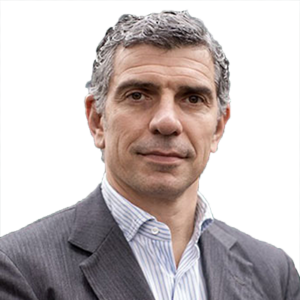
Alessandro BRESCIANI
Senior Vice President of Climate Technology Solutions, Baker Hughes
With over 22 years of global experience in the energy and industrial sectors, Alessandro has worked across the entire value chain and covered multiple roles including sales, commercial, operations, services, and business development. Prior to his current role he was VP, Services for the Turbomachinery & Process Solutions business in Baker Hughes.
He holds a degree in Industrial Engineering and a Master’s degree in Business Administration from SDA Bocconi, and is a Member of the Board of Directors of Nuovo Pignone International S.r.l.

Gerhard THONHAUSER
Head, Chair of Drilling and Completion Engineering, Montanuniversität Leoben
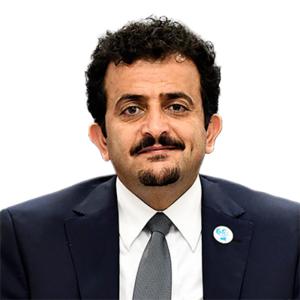
Dr. Ayed S. AL-QAHTANI
Director, Research Division, OPEC
Prior to his present assignment, Dr. Al-Qahtani was an advisor to H.E. Minister of Energy, Industry and Mineral Resources, Saudi Arabia. Earlier in his career, Dr. Al-Qahtani held various executive and technical positions with Saudi Aramco and World Energy Council.
Dr. Al-Qahtani holds a PhD in Minerals Economics from Colorado School of Mines, USA, a MSc in Petroleum Economics & Management from Institute of Francaise du Petrole, France, an Executive Master of Advanced Studies in International Oil & Gas Leadership from Graduate Institute, Switzerland and a MSc in Minerals Economics from Colorado School of Mines, USA. He also holds a BSc in Petroleum Engineering from King Fahd University of Petroleum & Minerals, Saudi Arabia.
Moderated by

Helima CROFT
Managing Director and Global Head of Commodity Strategy, RBC Capital Markets
Helima Croft, PhD
Managing Director, Head of Global Commodity Strategy and MENA Research
Global Research, RBC Capital Markets, LLC
Bio
Helima is a Managing Director and the Head of Global Commodity Strategy and Middle East and North Africa (MENA) Research at RBC Capital Markets. She specializes in geopolitics and energy, leading a team of commodity strategists that cover energy, metals and cross-commodity investor activity, as well as policy analysis and both Washington and global political insights. Helima is a member of the National Petroleum Council, a select group of individuals who advise, inform and make recommendations to the Secretary of Energy with respect to any matter relating to oil and natural gas. She also is a CNBC contributor, a member of the channel’s exclusive family of experts, is on the Board of Directors for the Atlantic Council, and is a Life Member of the Council on Foreign Relations. She is on the Board of Directors of Reservoir Media, Inc., the first female-founded and led publicly traded independent music company in the U.S. Helima joined RBC Capital Markets from Barclays, where she was a Managing Director and Head of North American Commodities Research. Prior to that, she worked in Lehman’s Business Intelligence Group, the Council on Foreign Relations and the Central Intelligence Agency, where she focused on geopolitics and commodities. Helima has received many industry accolades throughout her career and received her PhD in economic history from Princeton in 2001
19:00 – 21:30
Gala dinner
Moderated by

John DEFTERIOS
Professor of Business NYU, Abu Dhabi
John Defterios is veteran, award winning journalist and economic analyst with more than 35 years of experience at CNN, Reuters and PBS Television in the United States.
John recently retired as CNN Business’ Emerging Markets Editor and Anchor. Based in the network’s Abu Dhabi bureau since 2011, his reporting focused on the top business stories from emerging economies, with a specialty in energy, trade, and geo-politics.
He is a board member in media and the youth development arenas, Professor of Business at NYU-Abu Dhabi, a World Economic Forum Disntinguished Energy Fellow and Strategic Senior Advisor for the global public affairs firm APCO Worldwide.
Defterios arrived full-time to the Gulf during the regional uprisings of the Arab Spring and covered the economic rebuilding and challenges across the region. Major story coverage included: the impact of Covid-19 on the global economy, oil prices collapsing into negative territory for the first time, and the passing of King Abdullah in Saudi Arabia. He was key member of the CNN team that won the coveted Alfred I. Dupont award for in-country coverage between 2017-19.
His last major project for CNN, was the conception, launch and hosting of the “Global Energy Challenge” a year long series exploring the energy transition. In this role, Defterios was Managing Editor and presenter travelling from Far East Asia to North America exploring the journey to Net Zero by 2050. Defterios started covering energy in the mid-1980’s with special series from Alaska, the Gulf of Mexico and the Arabian Gulf, including worldwide exclusives from the burning oil fields of Kuwait.
Defterios remains a sought after fixture at high-level global events as both a speaker and moderator. He chairs sessions at the World Economic Forum, the OPEC Seminar, IMF Global Roundtable, St. Petersburg International Economic Forum, ADIPEC, Atlantic Council Global Energy Forum, U.A.E. World Government Summit, Global Manufacturing & Industrializaton Summit (GMIS), The Milken Institute, IRENA General Assembly, Euromoney Roundtables, Economist Global Summits, U.S.-Saudi Arabia Investment Summit, Islamic Development Bank Annual Meeting, , Stern Stewart Institute, Global Women’s Forum, UNWTO Global Tourism Council, World Energy Council and Saudi Arabia’s Future Investment Initiative and many others.
Defterios covered some of the landmarks events during his career including the Gulf War, the fall of the Berlin Wall, the World Trade Centre bombings and G8/G20 summits, the L.A. Riots from his postings in London, Washington, New York, Los Angeles, Rome and the U.A.E.
Defterios built a long-standing reputation for securing exclusive interviews with high-level figures during breaking news situations including: HH Sheikh Mohammed bin Rachid, Prime Minister of the UAE and Ruler of Dubai, King Abdullah II of Jordan, Ali Al Naimi, Khalid Al Falih & Prince Abdulaziz bin Salman, Energy Ministers of Saudi Arabia, which frequently moved oil markets. He also received The Abdullah bin Hamad Al-Attiyah International Foundation award for the Advancement of Energy Journalism.
Defterios was a World Economic Forum media leader from 1995-2021, a member of the Global Agenda Council on the Arab World and is a WEF Energy Fellow. He also serves on the board of the Stern Stewart Institute in Germany, a non-for-profit group promoting leadership and entrepreneurship.
Prior to CNN, Defterios worked for Reuters Television as European Correspondent, U.S. West Coast Correspondent and special series producer in a joint-venture with The Nightly Business Report on PBS-TV.
He graduated from the University of Southern California with a BA in Journalism and Political Economics and was a fellow at the USC’s Institute of Politics and Government in Washington D.C.

Eithne Treanor
Founder & CEO, ETreanor Media
Eithne Treanor is a professional conference moderator and international communications consultant. Having worked as a business TV reporter, her expertise covers energy, commodities, technology, infrastructure and leadership.
She is the founder and CEO of E Treanor Media based in Dubai, UAE.
As a former international broadcast journalist, her TV reporting experience spans major television networks including ABC News, Sky News, BBC World, Bloomberg and CNBC International.
She also provides dynamic and energetic bespoke media, moderator and presentation trainings for government officials, corporate executives and leaders. All her work and trainings help people engage with the media and be more effective and impactful delivering conference content on the global stage.
Eithne has interviewed politicians, dignitaries, and high-ranking business people and has written and reported for television, radio and print publications.
She is a graduate of Trinity College Dublin, Columbia College Chicago and has a post graduate Diploma in International Relations from London School of Economics.
*The programme is subject to change
09:00 – 09:05
Video address from HE Dr. Sultan Ahmed Al Jaber, COP28 President–Designate, UAE
Special Envoy for Climate Change, and Minister of Industry and Advanced Technology
09:10 – 10:00
Ministerial session 3
Pathways to just energy transitions
One of the major future challenges is how to construct sustainable and reliable energy systems. It requires a delicate balance between various targets, such as reducing emissions, energy availability and affordability, as well as energy security. Focusing on only one of these over the others can lead to unintended consequences, such as market distortions, heightened volatility and even energy shortfalls. The science tells us that tackling emissions has many possible paths. There is no one-size-fits-all solution, for countries or industries. The narrative that the energy transition is from oil and other fossil fuels to renewables is misleading and potentially dangerous to a world that continues to be thirsty for all energy sources. It is vital to look at the role of R&D and technology to help improve the environmental credentials of all energies, and thus help move towards an inclusive and just energy transition for all.
Speakers

Tarek EL MOLLA
Minister of Petroleum and Mineral Resources, Egypt
Joined Chevron (Egypt) in Jan. 1987.
Worked in different fields and held various positions in Engineering, Operations, Planning, Sales and Marketing.
In1998, he became Sales Manager and Member of the Board of Directors of Chevron Egypt S.A.E.
During the period from 2002 till 2008, he got several Chevron assignments and managed projects in Dubai, Kenya & Singapore.
In 2008 he became Managing Director – Marketing of Chevron Egypt.
From 2008 till end of 2010, he moved to Chevron South Africa, held the position of Regional Manager in charge of South & Central Africa’s Commercial & Industrial Business.
In Jan. 2011,he joined Egyptian General Petroleum Corporation ( EGPC ) . During the period from ( 2011 –2013 ) he held the positions of Deputy CEO for Foreign Trade, Deputy CEO for Internal Trade and Deputy CEO for Operations
In Aug.2013, He was appointed as EGPC’s CEO.
On 19th Sept. 2015, he was appointed as Minister of Petroleum and Mineral Resources.
On 10th May 2017,the French President awarded him the “Ordre National de la Legion D’Honneur” at the rank of Knight
On10th November 2020,the President of the Hellenic Republic awarded him the “Grand Commander of the Order of Phoenix”

Ana FONTOURA GOUVEIA
Secretary of State of Energy and Climate, Portugal
Mrs. Fontoura Gouveia holds a PhD in Economics from Nova School of Business and Economics and is the author of several publications on public policy. From end-2019 to 2022, Mrs. Fontoura Gouveia wasthe Economic Advisor to the Prime-Minister of Portugal and Assistant Professor (Adjunct) at the Nova School of Business and Economics. Previously, she worked at the Portuguese Central Bank (2019; 2004-2008), the European Central Bank (2009-2014), and the Research Offices of the Portuguese Ministry of the Economy and of the Portuguese Ministry of Finance (2015-2018).
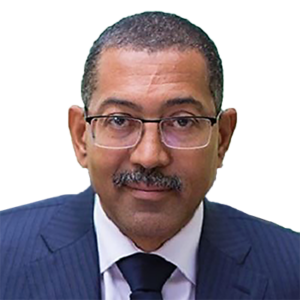
Diamantino PEDRO AZEVEDO
Minister of Mineral Resources and Petroleum, Angola
In 2017 He was appointed Minister of Mineral Resources, Petroleum and Gas of the Republic of Angola, which he holds to date, after being reappointed in 2022.
He is currently the Chairman of the National Coordination Committee of the Extractive Industries Transparency Initiative (EITI) in Angola, since 2020.
In 2022 He chaired the African Organization of Petroleum Producers (APPO) and in 2021 the Organization of Petroleum Exporting Countries (OPEC).
From 2006 to 2017 He was the Chairman of the Board of Directors of the company FERRANGOL and Non-Executive Chairman of several mining companies in Angola. During this period, he was involved in different working groups, such as the drafting of the new Angolan Mining Code and the National Geology Plan.
In 2002, He was appointed as Director General of the former South and East African Mining Center (SEAMIC), based in Dar Es Salaam, Tanzania, holding this position until 2006.
He joined the Ministry of Geology and Mines of the Republic of Angola in 1997 as a Consultant to the Minister, and was later appointed National Director of International Relations. In the same Ministry he also acted as Deputy President of the Mining Development Fund.
From 1998 to 2017 He taught Mineral Economics for students of the Mining Engineering course, and Valuation of Oil and Gas Projects for students of Petroleum Engineering, at the Faculty of Engineering of the Agostinho Neto University, in Luanda. He was also invited to give lectures on Economic Geology to Master's students in Geology at the same University.
He holds a PhD in Mining Engineering from the Technical University of Berlin (1997).
In 1992, he obtained the Management Certificate of the Technology Transfer Center from the Technical University of Clausthal Zellerfeld in Germany and in 1991 he acquired a Master's degree in Mining Engineering from the Mining Academy Frelberg in Germany.
Before becoming a Geology student at the Faculty of Sciences at the Agostinho Neto University in Luanda, in 1997 Diamantino Azevedo was one of the first students at the National Petroleum Institute (INP), a medium technical school located in Sumbe, Cuanza Sul, where He studied Oil Drilling and Production, in 1979.

Ana PALACIO
Former Minister of Foreign Affairs, Spain
Moderated by

John DEFTERIOS
Professor of Business NYU, Abu Dhabi
John Defterios is veteran, award winning journalist and economic analyst with more than 35 years of experience at CNN, Reuters and PBS Television in the United States.
John recently retired as CNN Business’ Emerging Markets Editor and Anchor. Based in the network’s Abu Dhabi bureau since 2011, his reporting focused on the top business stories from emerging economies, with a specialty in energy, trade, and geo-politics.
He is a board member in media and the youth development arenas, Professor of Business at NYU-Abu Dhabi, a World Economic Forum Disntinguished Energy Fellow and Strategic Senior Advisor for the global public affairs firm APCO Worldwide.
Defterios arrived full-time to the Gulf during the regional uprisings of the Arab Spring and covered the economic rebuilding and challenges across the region. Major story coverage included: the impact of Covid-19 on the global economy, oil prices collapsing into negative territory for the first time, and the passing of King Abdullah in Saudi Arabia. He was key member of the CNN team that won the coveted Alfred I. Dupont award for in-country coverage between 2017-19.
His last major project for CNN, was the conception, launch and hosting of the “Global Energy Challenge” a year long series exploring the energy transition. In this role, Defterios was Managing Editor and presenter travelling from Far East Asia to North America exploring the journey to Net Zero by 2050. Defterios started covering energy in the mid-1980’s with special series from Alaska, the Gulf of Mexico and the Arabian Gulf, including worldwide exclusives from the burning oil fields of Kuwait.
Defterios remains a sought after fixture at high-level global events as both a speaker and moderator. He chairs sessions at the World Economic Forum, the OPEC Seminar, IMF Global Roundtable, St. Petersburg International Economic Forum, ADIPEC, Atlantic Council Global Energy Forum, U.A.E. World Government Summit, Global Manufacturing & Industrializaton Summit (GMIS), The Milken Institute, IRENA General Assembly, Euromoney Roundtables, Economist Global Summits, U.S.-Saudi Arabia Investment Summit, Islamic Development Bank Annual Meeting, , Stern Stewart Institute, Global Women’s Forum, UNWTO Global Tourism Council, World Energy Council and Saudi Arabia’s Future Investment Initiative and many others.
Defterios covered some of the landmarks events during his career including the Gulf War, the fall of the Berlin Wall, the World Trade Centre bombings and G8/G20 summits, the L.A. Riots from his postings in London, Washington, New York, Los Angeles, Rome and the U.A.E.
Defterios built a long-standing reputation for securing exclusive interviews with high-level figures during breaking news situations including: HH Sheikh Mohammed bin Rachid, Prime Minister of the UAE and Ruler of Dubai, King Abdullah II of Jordan, Ali Al Naimi, Khalid Al Falih & Prince Abdulaziz bin Salman, Energy Ministers of Saudi Arabia, which frequently moved oil markets. He also received The Abdullah bin Hamad Al-Attiyah International Foundation award for the Advancement of Energy Journalism.
Defterios was a World Economic Forum media leader from 1995-2021, a member of the Global Agenda Council on the Arab World and is a WEF Energy Fellow. He also serves on the board of the Stern Stewart Institute in Germany, a non-for-profit group promoting leadership and entrepreneurship.
Prior to CNN, Defterios worked for Reuters Television as European Correspondent, U.S. West Coast Correspondent and special series producer in a joint-venture with The Nightly Business Report on PBS-TV.
He graduated from the University of Southern California with a BA in Journalism and Political Economics and was a fellow at the USC’s Institute of Politics and Government in Washington D.C.
10:00 – 11:00
High-level roundtable 4
Eradicating energy poverty
Action is required more than ever to help eradicate energy poverty amid disruptions related to the impacts of the COVID-19 pandemic, geopolitics, and the global economic situation. At present, the world is falling behind in the attainment of UN Sustainable Development Goal (SDG) 7, related to energy poverty eradication. For example, the COVID-19 pandemic has brought widespread human and socio-economic ramifications, not least for developing countries and vulnerable groups who feel the effects acutely. International cooperation and finance are fundamental factors for achieving progress on SDGs, including on universal energy access, so that no one is left behind as the world looks at a just and inclusive energy transition.
Speakers

Fereidun FESHARAKI
Founder and Chairman, FGE
He joined the East-West Center in 1979 and was a senior fellow leading energy-related research until 2013. In 1989, Dr. Fesharaki was elected a member of the Council on Foreign Relations in New York, and since 1991, he has been a member of the International Advisory Board of JX Holdings (and its predecessor companies), Japan’s largest oil company.
Dr. Fesharaki was the 1993 president of the International Association for Energy Economics. In 1995, he was elected a senior fellow of the U.S. Association for Energy Economics, and in 2008, he was appointed to the National Petroleum Council by the U.S. secretary of energy and reappointed in April 2016. He was a member of the Advisory Board of VOPAK LNG from 2013 to 2015, and in 2014, he was appointed as honorary adviser to the China National Petroleum Corporation’s Research Institute of Economics and Technologies in Beijing.
Dr. Fesharaki is the recipient of the 2016 Adelman-Frankel Award from the U.S. Association for Energy Economics for his unique and innovative contribution to the field. In March 2017, the Chicago Mercantile Exchange appointed him as a director of the Dubai Mercantile Exchange (DME).
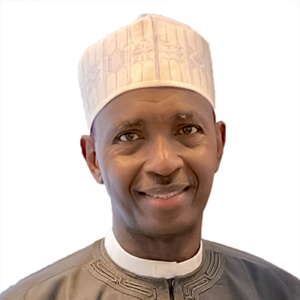
Omar Farouk IBRAHIM
Secretary General, APPO
He is the Secretary General of APPO, a position he assumed in January 2020. He is also the World Energy Council Vice Chair for Africa.
Until then, Dr. Ibrahim was Adviser on International Energy Relations to four successive Petroleum Ministers of Nigeria. He was OPEC Governor between 2015 and 2020, and Executive Board Member at the GECF.
Dr. Ibrahim was Head of the PR and Information Department at the OPEC Secretariat (2003-2010).
He also held the position of Managing Director of the Nigerian Federal Government Owned Newspaper, The New Nigerian (1999-2003).

Mele Kolo KYARI
Group CEO, Nigerian National Petroleum Corporation Limited
Mele Kolo Kyari has very rich oil and gas industry experience, spanning over 27 years. A 1987 graduate of Geology and Earth Science from the University of Maiduguri, the GCEO of NNPC Ltd served as a Well Site Geologist with the Directorate of Foods, Roads, and Rural Infrastructure (DFRRI) between 1987 and 1988 under the National Youth Service Corps scheme. Thereafter, he worked with the Nigerian Geological Survey Agency between 1988 and 1991 before joining NNPC as a Seismic Data Processing Geophysicist in the Data Processing Department of Integrated Data Services Limited (IDSL) in 1992. He also made his mark as a labour union leader when he served as the NNPC Group Chairman of the Petroleum and Natural Gas Senior Staff Association of Nigeria (PENGASSAN) from 1997 to 1999.
He was later appointed as Exploration Geophysicist, Production Sharing Contract (PSC), at the National Petroleum Investments Management Services (NAPIMS) in 1998 from where he was made the Head of NAPIMS Operations in Abuja in 2004. In 2006, he was appointed the Supervisor PSC, Crude Oil Marketing Department (COMD) of the NNPC, from where he rose to the position of Head, and later Manager of Production Contracts Management of the COMD between 2007 and 2014. Mr. Kyari was appointed General Manager Oil Stock Management, COMD where he worked till 2015 when he was appointed Group General Manager, COMD and later Nigeria’s National Representative at OPEC. He is currently the Group Chief Executive Officer of the Nigerian National Petroleum Company Limited.

Adewale TINUBU
Group Executive Officer, Oando
Mr. Tinubu is widely recognized for leading the strategic evolution of Oando PLC from a predominantly downstream petroleum marketing company to a fully diversified, integrated Oil & Gas Company with interests in the Downstream, Midstream, Upstream and Clean Energy sectors.
In recognition of his impact on the Nigerian energy sector, he was conferred a National Award as Commander of the Order of the Niger (CON), by the President of the Federal Republic of Nigeria, President Muhammadu Buhari. In 2023, he was awarded the ‘Private Sector Icon of the Year award at the prestigious Vanguard Personality of the Year awards.

Demetrios PAPATHANASIOU
Global Director for the World Bank's Energy and Extractives Global Practice, The World Bank
Dr. Papathanasiou has worked for more than 20 years with the World Bank Group on Energy and Infrastructure in Africa, Latin America, East Europe and the Balkans, South Asia, East Asia and the Pacific Islands. He has contributed to developing energy policies in several countries and worked on power generation projects using many diverse technologies: thermal, hydropower, solar, wind, and geothermal. He has led large teams on complex utility and sector reforms, as well as sizeable public-private partnership transactions. As the Manager for the World Bank’s Energy Practice in South Asia (2016-2020), he was responsible for a portfolio of more than $10 billion and worked to increase renewable energy projects in the region, expand regional interconnections and exchanges, and modernize networks across the region.
A professional Electrical Engineer, Dr. Papathanasiou holds an MSc in Environmental Technology and a PhD in Energy and the Environment from Imperial College in London, UK.
Moderated by

Richmond OSUJI
President, Lipservice Communication and Resources Limited
A Consummate public speaker, actor, entrepreneur, effective communicator and leading talk service provider in Africa. He is the President of Lipservice Communication and Resources Limited – an effective communication company that specializes in the provision of first class talk services for event organizers & the mass media, and documentary production. He has worked for a lot of blue-chip companies, organizations, individuals and government agencies including: The Presidency of the Federal Republic of Nigeria, Shell, NNPC Ltd, Seplat Energy, Chevron, Total, Waltersmith, CIBN, EY, AGAL, OPTS, PETAN, NAPE, SPE, DMG, GACN, NCDMB, NPA, NSC, NLNG, Brevity Anderson, etc.
11:00 – 11:20
Networking coffee break
11:20 – 12:20
High-level roundtable 5
The pace of energy transitions and climate change policies
Striking a balance between satisfying the energy needs of the global economy and building a comprehensive, resilient, sustainable, and climate-friendly energy system that supports and enables sustainable development is one of the key challenges of this generation. Many possible response actions are available across the world, with an increasing number of climate change policies emerging subject to national circumstances, many of which are relevant to the energy sector. Besides national policies, a stronger role for international climate change policy has been called for recognizing that the choice of a climate mitigation pathway should not be binary – namely, hydrocarbons or renewables – but an inclusive and just approach. Recently this has become more evident, but there remain divergent views on the pace for energy transitions.
Speakers

Carlos GARIBALDI
Executive Secretary, ARPEL
With over 40 years of industry experience, Carlos has developed expertise in corporate strategy, E&P portfolio planning and valuation, business development (exploration new ventures and M&A), contractual and fiscal terms design, tender design and in international negotiations.
Carlos has held technical, managerial, and executive roles in Amoco, San Jorge, Chevron, The Scotia Group, Harrison Lovegrove, Standard Chartered Bank, Tecpetrol, HSBC, Ecopetrol, Arthur D. Little and Plata Energy.
Carlos earned a professional degree in Chemical Engineering from the Universidad de Buenos Aires, a M.Sc. in Petroleum Engineering from the University of Tulsa, and an MBA from Rice University.

Majid JAFAR
Chief Executive Officer, Crescent Petroleum
In addition to his professional responsibilities, Majid Jafar serves on several non-profit boards, including: Queen Rania Foundation (QRF), Kalimat Foundation, the Arab Forum for Environment and Development (AFED), and the Iraq Energy Institute; the Board of Fellows Harvard Medical School, the Panel of Senior Advisers of the Royal Institute of International Affairs (Chatham House), and the International Advisory Board of the Prince's Trust International and The Atlantic Council. He is an Accredited Director of the Institute of Directors (IoD Mudara), a member of the GCC Board Directors Institute and the Young Presidents Organization (YPO). He was named a Young Global Leader by the World Economic Forum.
Majid Jafar was educated at Eton College and Cambridge University (Churchill College), graduating with Bachelor and Master’s Degrees in Engineering (Fluid Mechanics and Thermodynamics). He also earned an MA (with Distinction) in International Studies and Diplomacy from the University of London's School of Oriental & African Studies (SOAS), and an MBA (with Distinction) from the Harvard Business School.

Bernard LOONEY
Group Chief Executive/CEO, bp
He is an advocate for inclusion, mental health and the role that greening companies like bp can play in helping the world get to net zero.
He has spent his entire career at bp, joining as an engineer in 1991. He is a steering committee member for the Council for Inclusive Capitalism, an FCLTGlobal board member and leads the Energy Transition Taskforce of the Sustainable Markets Initiative.

Tan Sri Tengku, MUHAMMAD TAUFIK
President and Group CEO, Petronas
Tengku Taufik was appointed President and Group CEO in July 2020 from his previous position as EVP and Group CFO. He holds Board positions in PETRONAS Carigali Sdn Bhd, PETRONAS International Corporation Ltd, and PETRONAS Refinery and Petrochemical Corporation Sdn. Bhd. He is the Chairman of the East Coast Economic Region Development Council (ECERDC) Audit Committee, the National Trust Fund, the Northern Corridor Implementation Authority (NCIA) Audit Committee and the CEO Action Network. He is also a Council Member of the World Business Council for Sustainability Development (WBCSD), the ECERDC and NCIA, a member of the Board of Trustees of the Merdeka Award Trust, and the National Employment Council (Majlis Pekerjaan Negara).
Tengku Taufik is a member of the World Economic Forum (WEF) Oil & Gas Governors Forum, the WEF Industry Action Group and the APEC Business Advisory Council (ABAC). He is also the Pro-Chancellor of Universiti Teknologi PETRONAS (UTP).

Simon STIELL
UNFCCC Executive Secretary, UN

Balaji KRISHNAMURTHY
Vice President for Strategy & Sustainability, Chevron
Most recently, Balaji served as president of Chevron Canada Limited, where he oversaw the company’s upstream interests in Canada. Prior to that, Balaji was the general manager of the Corporate Transformation and Integration Management Office. In that capacity, he oversaw the enterprise transformation effort and led the Noble Energy integration.
Mr. Krishnamurthy joined Chevron Technology Ventures in 2002 as an experienced hire and has held numerous positions of increasing responsibility in project management, decision analysis, asset development, asset operations, corporate strategy, and business unit leadership. The majority of his career has been in Upstream international business units supporting operations in Angola, Thailand, Kazakhstan, and Canada, and corporate headquarters in San Ramon, CA.
Balaji earned a bachelor’s degree in chemical engineering and electrochemical engineering from the Central Electrochemical Research Institute in India, a master’s degree in materials science and engineering from the University of Florida, and a master’s in business administration from the University of Texas at Austin.
Moderated by

Eithne TREANOR
Founder & CEO, ETreanor Media
Eithne Treanor is a professional conference moderator and international communications consultant. Having worked as a business TV reporter, her expertise covers energy, commodities, technology, infrastructure and leadership.
She is the founder and CEO of E Treanor Media based in Dubai, UAE.
As a former international broadcast journalist, her TV reporting experience spans major television networks including ABC News, Sky News, BBC World, Bloomberg and CNBC International.
She also provides dynamic and energetic bespoke media, moderator and presentation trainings for government officials, corporate executives and leaders. All her work and trainings help people engage with the media and be more effective and impactful delivering conference content on the global stage.
Eithne has interviewed politicians, dignitaries, and high-ranking business people and has written and reported for television, radio and print publications.
She is a graduate of Trinity College Dublin, Columbia College Chicago and has a post graduate Diploma in International Relations from London School of Economics.
12:20 – 13:50
Lunch
13:50 – 14:50
Ministerial session 4
Diversifying energy economies
Increasingly stringent climate mitigation policies and actions could have important implications for energy exporting economies and their right to sustainable development. Economic diversification and resilience could provide innovative approaches to mitigate risks and offset any impacts arising from the implementation of climate response measures. Some countries are well under way in diversifying their economies, but it is clear that alternative pathways are being followed due to diverse economic conditions, comparative advantages, priorities, capabilities and national circumstances. All available approaches and viable options that could support economic diversification and enhance resilience, in light of resource availability, should be considered in order to create a more predictable environment for investment, trade and technology advancement, while offering the wider benefits needed to set the world on a sustainable and fair pathway.
Speakers

Suhail Mohamed AL MAZROUEI
Minister of Energy and Infrastructure, UAE
Besides his Ministerial responsibilities, His Excellency holds the following positions:
- Chairman of the Board of Directors of the Federal Electricity and Water Authority.
- Chairman of the Board of Directors, Emirates General Petroleum Corporation.
- Member of the Supreme Petroleum Council and member of the Executive Committee of the Council.
- Member of the Board of Directors and of the Executive Committee of Mubadala Investment Company.
- Vice-Chairman of the Board of Directors of: (Emirates Nuclear Energy Corporation, Nawah Energy Company, and Barakah One Company)
- Member of the Board of Directors of Dolphin Energy.
His Excellency has eminent management experiences in the field of corporate management in several sectors including shipbuilding, defence systems, petroleum services sector, oil and gas, and the real estate development sector. His Excellency Suhail Al Mazrouei graduated in 1996 from the University of Tulsa in the United States of America with a Bachelor’s degree in Petroleum Engineering. He was born in Dubai on July 1st, 1973. His hobbies include poetry, literature and history.

Puot Kang CHOL
Minister of Petroleum, South Sudan
He started his education career at a School in Dima Refugee Camp in Ethiopia, where he completed primary level. He later joined Kebena Secondary School in Ethiopia where finished high school.
Puot thereafter, went to Kampala, Uganda where he was admitted at Cavendish University and graduated with a Bachelor of Law (LLB) in 2013.
Puot was first appointed as Executive Director in the office of the then Deputy Secretary General of the SPLM Party Southern Sector, Dr. Ann Itto. He also served as Director of Membership and Recruitment in the SPLM in 2010, a position he held up to the eruption of the war in December 2013.
However, after the signing of the revitalized peace agreement, Puot Kang was later appointed the minister of petroleum when South Sudan announced a new unity government in 2020.
Since his appointment into office, Puot Kang has accomplished several projects including the completion of a unified human resource manual for employees in the country's oil sector, purchase of geophysical aircraft for surveying and generate geophysical aerial data of oil and other mineral resources in South Sudan and setting foundation for environmental audit on the impacts of oil in the environment in the country.

Vincent DE PAUL MASSASSA
Minister of Petroleum, Gas, Hydrocarbons and Mines, Gabon

Bruno Jean-Richard ITOUA
Minister of Hydrocarbons, Republic of the Congo
Moderated by

Bob McNALLY
President, Rapidan Energy Group
Robert (“Bob”) McNally is the founder and president of Rapidan Energy Group, a Washington, DC-based independent energy market policy and geopolitical consulting firm.
Bob’s 32-year career includes service as a White House energy advisor to President George W. Bush, an oil market analyst, and a hedge fund strategist at Tudor Investment Corporation. His acclaimed book Crude Volatility: The History and the Future of Boom-Bust Oil Prices (Columbia University Press, 2017) won the IAEE ‘Marcel Boiteux Best International Energy Economics Book Award’ in 2023.
Leading media outlets regularly interview Bob, who frequently testifies before Congress on energy markets and national security. From 2001 to 2003, he served as Special Assistant to the President on the White House National Economic Council and, in 2003, Senior Director for International Energy on the National Security Council.
Bob earned his B.A./B.S. in Political Science and International Relations from American University and his M.A. in International Economics and Foreign Policy from Johns Hopkins School of Advanced International Studies (SAIS).
14:50 – 15:50
High-level roundtable 6
The role of international cooperation in diversifying economies
Economic diversification and enhancing economic resilience can be achieved through a range of pathways. Today, countries find themselves at different stages of economic development and diversification, and with varying capabilities and resource availability, all of which need to be taken into account. International cooperation and multilateral fora could play a key role in aiding the diversification of energy exporting and importing economies through the facilitation of knowledge sharing, technological exchanges, as well as in the energy space through actions aimed at improving market stability. Furthermore, the related challenges of sustainable development, addressing climate change and ensuring energy security will require widespread engagement at a multinational level, further underscoring the paramount importance of international dialogue.
Speakers

Amani ABOU- ZEID
Commissioner for Infrastructure and Energy, African Union Commission
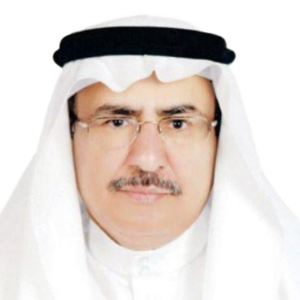
Ibrahim AL-MUHANNA
President, Saudi Energy Consultants
AlMuhanna has had a distinguished career in academia and public services, serving as advisor to four ministers of energy of the Kingdom of Saudi Arabia from 1989 to 2023, as well as serving as a former vice chairman of the World Energy Council. AlMuhanna holds a PhD in international relations from American University in Washington, DC.

Paulino JERÓNIMO
President, National Oil, Gas and Biofuels Agency, Angola
Prior to ANPG’s creation in 2019 he has held several high-level positions in angola’s oil and gas industry, including Secretary of State for Petroleum. In the Upstream sector he has been at the core of the activity as CEO at Sonangol’s Research and Exploration business Unit heading the operational areas. Between 2013-2016 he was also member of the Board of Directors at Sonangol.
The Chairman holds a BSC and MSC in Geophysics by the Higher Institute of Oil and Gas of Azerbaijan, Azisbekova.

Joseph MCMONIGLE
Secretary General, International Energy Forum (IEF)
He has over 20 years of experience working on energy issues in the public and private sectors.
He was the President & Co-Founder of The Abraham Group as well as a senior energy analyst for Hedgeye Risk Management.
He was Chief of Staff at the U.S. Department of Energy and served as the Vice Chairman and US Representative to the IEA.
He is an attorney and an FAA licensed pilot.

Dr. Amrita SEN
Founder and Director of Research, Energy Aspects
Dr. Amrita Sen is the Founder and Director of Research at Energy Aspects, a global research house that advises over 500 companies globally on energy markets and geopolitics. Amrita leads Energy Aspects’ forecasts and analysis of crude and oil products markets, and she also delivers expertise in natural gas and energy transition analytics. Amrita’s deep understanding of the complex relationships within the global energy sector, her wealth of industry contacts, and nearly 15 years of market experience enable her to have a unique perspective on international energy markets. She advises central bankers, OPEC+ oil ministers with close relations to the GCC, and CEOs of oil companies around the world. She holds a PhD from the University of London, an MPhil in Economics from Cambridge University, and a BSc in Economics from the University of Warwick.
She was formerly Chief Oil Analyst for Barclays Capital and is frequently featured in leading media outlets. She has served as a research fellow at both the Oxford Institute of Energy Studies and the Atlantic Council and is currently a fellow at the Canadian Global Affairs Institute. Amrita is regarded as a leading authority on oil markets and is a sought-after speaker for top industry conferences.

Charif SOUKI
Co-founder and Executive Chairman of the Board, Tellurian Inc.
Charif began his career as an investment banker and spent 20 years specializing in financing small capitalization companies in the energy industry. He founded Cheniere Energy in 1996, helping to create the North American LNG export industry in the wake of the shale revolution. Charif served as Chairman of the Board of Directors and Chief Executive Officer and President, and ultimately built an LNG complex with an enterprise value of $30 billion, with over 30 mtpa of liquefaction under construction and 9 mtpa permitted at two facilities, Sabine Pass and Corpus Christi.
He currently serves as a member of the Advisory Board of the Center on Global Energy Policy at Columbia University, and on the International Advisory Board for the Neurological Research Institute (NRI) at Texas Children’s Hospital. Charif received a BA from Colgate University and an MBA from Columbia University.
Moderated by

John DEFTERIOS
Professor of Business NYU, Abu Dhabi
John Defterios is veteran, award winning journalist and economic analyst with more than 35 years of experience at CNN, Reuters and PBS Television in the United States.
John recently retired as CNN Business’ Emerging Markets Editor and Anchor. Based in the network’s Abu Dhabi bureau since 2011, his reporting focused on the top business stories from emerging economies, with a specialty in energy, trade, and geo-politics.
He is a board member in media and the youth development arenas, Professor of Business at NYU-Abu Dhabi, a World Economic Forum Disntinguished Energy Fellow and Strategic Senior Advisor for the global public affairs firm APCO Worldwide.
Defterios arrived full-time to the Gulf during the regional uprisings of the Arab Spring and covered the economic rebuilding and challenges across the region. Major story coverage included: the impact of Covid-19 on the global economy, oil prices collapsing into negative territory for the first time, and the passing of King Abdullah in Saudi Arabia. He was key member of the CNN team that won the coveted Alfred I. Dupont award for in-country coverage between 2017-19.
His last major project for CNN, was the conception, launch and hosting of the “Global Energy Challenge” a year long series exploring the energy transition. In this role, Defterios was Managing Editor and presenter travelling from Far East Asia to North America exploring the journey to Net Zero by 2050. Defterios started covering energy in the mid-1980’s with special series from Alaska, the Gulf of Mexico and the Arabian Gulf, including worldwide exclusives from the burning oil fields of Kuwait.
Defterios remains a sought after fixture at high-level global events as both a speaker and moderator. He chairs sessions at the World Economic Forum, the OPEC Seminar, IMF Global Roundtable, St. Petersburg International Economic Forum, ADIPEC, Atlantic Council Global Energy Forum, U.A.E. World Government Summit, Global Manufacturing & Industrializaton Summit (GMIS), The Milken Institute, IRENA General Assembly, Euromoney Roundtables, Economist Global Summits, U.S.-Saudi Arabia Investment Summit, Islamic Development Bank Annual Meeting, , Stern Stewart Institute, Global Women’s Forum, UNWTO Global Tourism Council, World Energy Council and Saudi Arabia’s Future Investment Initiative and many others.
Defterios covered some of the landmarks events during his career including the Gulf War, the fall of the Berlin Wall, the World Trade Centre bombings and G8/G20 summits, the L.A. Riots from his postings in London, Washington, New York, Los Angeles, Rome and the U.A.E.
Defterios built a long-standing reputation for securing exclusive interviews with high-level figures during breaking news situations including: HH Sheikh Mohammed bin Rachid, Prime Minister of the UAE and Ruler of Dubai, King Abdullah II of Jordan, Ali Al Naimi, Khalid Al Falih & Prince Abdulaziz bin Salman, Energy Ministers of Saudi Arabia, which frequently moved oil markets. He also received The Abdullah bin Hamad Al-Attiyah International Foundation award for the Advancement of Energy Journalism.
Defterios was a World Economic Forum media leader from 1995-2021, a member of the Global Agenda Council on the Arab World and is a WEF Energy Fellow. He also serves on the board of the Stern Stewart Institute in Germany, a non-for-profit group promoting leadership and entrepreneurship.
Prior to CNN, Defterios worked for Reuters Television as European Correspondent, U.S. West Coast Correspondent and special series producer in a joint-venture with The Nightly Business Report on PBS-TV.
He graduated from the University of Southern California with a BA in Journalism and Political Economics and was a fellow at the USC’s Institute of Politics and Government in Washington D.C.
15:50 – 16:30
Closing session
Speakers

Haitham AL GHAIS
Secretary General, OPEC

